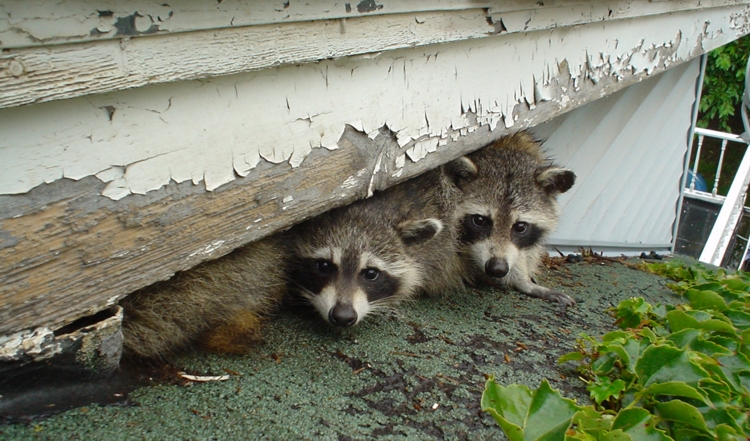Defining a Raccoon Latrine
Like cats, raccoons are particular about where they go to the bathroom. They will not defecate or urinate in their dens or burrows. The nocturnal mammals will find a location near their den and use it as a restroom. They will continue to use the same area as a restroom for as long as it suits their needs. Experts refer to the area as a raccoon latrine.Understanding Disease Risks of Raccoon Urine and Feces
If you spot a latrine, avoid it and keep your pets away. Call a professional to your property to clean and remove the waste safely. Raccoon waste is home to many bacteria and viruses. If your pets get too close or eat the excrement, they can become infected. Raccoons are host carriers of several diseases.Leptospirosis
Leptospirosis is a bacterial infection that causes flu-like symptoms. The raccoon transmits the bacteria through its urine, which can then transfer to the ground or water sources. If a pet lays in a raccoon latrine or drinks from a nearby puddle or stream, it may ingest the bacteria. In the worst-case scenario, your pet can spread the infection to you. The symptoms of leptospirosis include:- Yellowing eyes
- Diarrhea
- Muscle aches
- Lethargy
- Fever
- Dark urine
Giardia
Like leptospirosis, giardia is a bacterium that can spread from pet to person, specifically dog to person. The bacteria can transfer through the consumption of raccoon feces or the drinking of affected water. While many dogs will not show symptoms, owners should watch for them all the same:- Weight loss
- Diarrhea
- Vomiting
- Lethargy
Roundworm
Roundworm is a parasitic disease that can pass from raccoon feces to dogs. As roundworm is a zoonotic disease, it can transfer to humans. Strangely enough, raccoons do not seem adversely affected by roundworm, but your pet will not have the same luck. Roundworm symptoms can resemble rabies and can prove fatal in puppies. Some of the more severe symptoms of the disease include:- Seizures
- Loss of muscle control and coordination
- Difficulty swallowing
- Confusion
- Lethargy
Distemper
Canada experienced a severe distemper outbreak in 2009, killing hundreds of raccoons and skunks. While distemper is not a threat to humans, it is a danger to your dogs. Canine distemper can spread through infected urine, feces, food, or water. A raccoon latrine is a possible contamination site.Keeping Your Pet and Property Safe
When speaking to experts in wildlife removal on Vancouver Island, there are several suggestions they offer to protect your property and your pet. Primarily, maintenance and proper food and trash storage provide the best protection. Specific recommendations include:- Never leave pet or people food outside
- Keep garbage, recycling, and compost in secure containers
- Clean food containers before disposing
- Treat your lawn for common garden pests, like grubs




